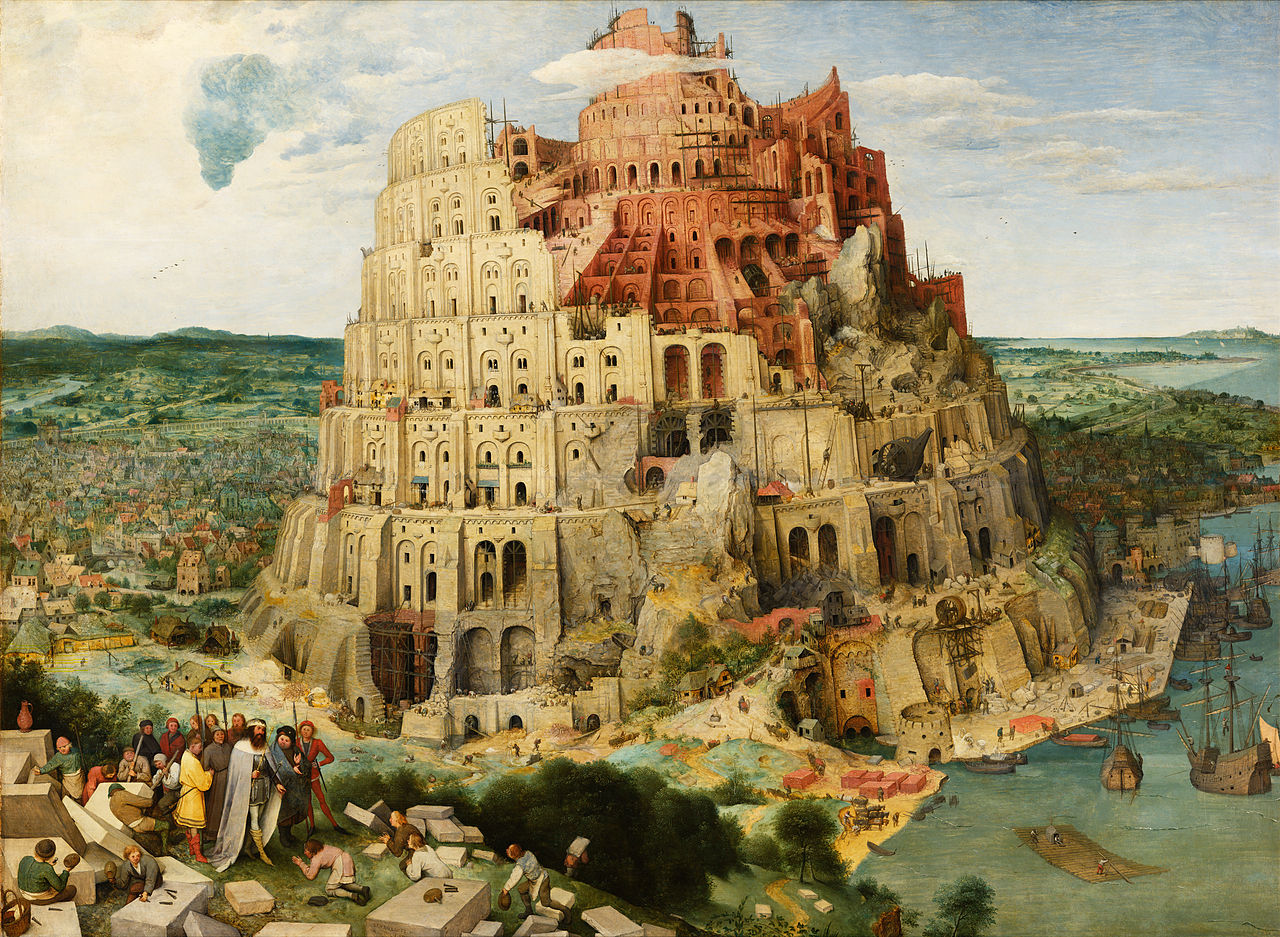
About
Why the Tower of Babel?
The Biblical story of the Tower of Babel provides one of the central metaphors of the book. In the story, the builders sought to build a tower that reached to heaven—a metaphor for the attempt to reach the infinite through finite means. Similarly, human beings through their technology—social and material—have sought to create a perfect world, a Utopia. Social technologies, such as systems of law, and physical technologies of energy, materials, and biota, have created an edifice that reaches high indeed. We call it civilization, but are we really any closer to Heaven? Are we better off today than the hunter-gatherer, the Roman peasant, the 1950 American? No matter how many problems we solve, the sky seems just as far away as ever. Meanwhile, the higher we build the more problems appear in the base of our structure, as if our civilization were beginning to collapse under its own weight. Look at Pieter Bruegel’s painting. The lower sections begin to crack and crumble even as they build the tower higher. Similarly, even as technology achieves new wonders, fundamental problems as old as civilization proliferate. We have microchips and nanotechnology, yet a large and growing portion of humanity cannot meet basic human needs for food, health, and security from violence. One look at the Tower in the painting is enough to see that the builders’ project is obviously doomed. It is absurd, in fact. The higher the building goes, the greater an insulation from reality is necessary to continue the effort. Yet continue it they must, because their whole way of life is built around its construction. Jared Diamond gives a similar answer to the question of why the Easter Islanders continued to destroy their ecosystem to erect huge monoliths, even when their doom should have been obvious. Their politics, their economy, their social organization, all depended on the construction. We as well are addicted to the ascent of technology. Faced with the problems caused by previous technology, we know no other way to solve them but through new technologies that generate their own unintended consequences. Helplessly, we build the Tower higher. One of two possible fates is in store for such an enterprise. One is a stupendous collapse, when the weakened foundation can no longer bear the structure’s weight. Many thinkers foresee precisely such a finale for civilization as its ecological basis degenerates. Another possibility is that, like in the story, the builders abandon their attempt. The Babelians woke up one day to find themselves speaking different languages—a metaphor for a breakdown in communication, consensus, and comity. The grand project of civilization is fragmenting; scientific hyperspecialization renders various fields mutually unintelligible; and we are doubting the possibility and desirability of building yet higher. Instead, people everywhere feel the pull to go back to nature, back to the land; to live more simply, more freely, more slowly. This trend points to the great irony of the all-consuming effort to build a tower to the sky—the sky is all around us already! A perfect world is available right now, and has always been available. We are no closer than our hunter-gatherer forebears, and no farther either. All that is needed is a shift of perception. We might still build towers, but the motivation will be entirely different. To what purpose would we turn the human gifts of hand and mind—technology and culture—when we are no longer driven skyward?
